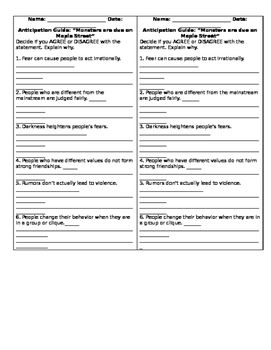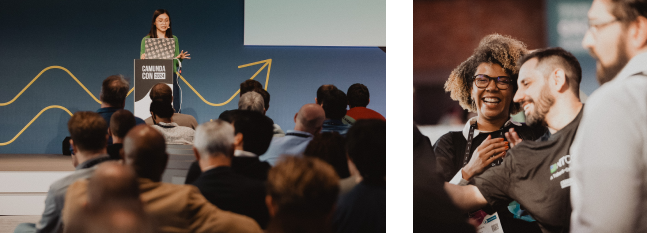Waiting: A Story Of Anticipation And Uncertainty

Table of Contents
The Psychology of Waiting: Understanding the Emotional Rollercoaster
The psychological effects of waiting are significant. The experience isn't simply a passive period of inactivity; it's an active process involving a continuous interplay of emotions. The length of the wait, the perceived importance of the outcome, and individual personality traits all play crucial roles in shaping this emotional rollercoaster. We might oscillate between hopeful anticipation—imagining positive outcomes—and anxious uncertainty—dwelling on potential negative consequences. This fluctuation can be intensely draining.
-
The role of expectation in shaping the waiting experience: The higher our expectations, the more intense our emotions during the wait. Unrealistic expectations can fuel anxiety and disappointment, while realistic expectations can foster patience and resilience.
-
How uncertainty amplifies negative emotions during a wait: The inability to predict the outcome significantly amplifies negative feelings. Uncertainty breeds anxiety and fuels "what if" scenarios, leading to heightened stress and impatience.
-
Coping mechanisms for managing anxiety during prolonged periods of waiting: Techniques like deep breathing exercises, mindfulness meditation, and engaging in distracting activities can help manage anxiety.
-
The impact of perceived control on the emotional experience of waiting: Feeling some degree of control over the situation, even if minimal, can significantly reduce stress. Knowing you've taken proactive steps—for example, preparing for a job interview—can lessen the feeling of helplessness.
Waiting in Different Contexts: From the Mundane to the Monumental
The nature of waiting varies drastically depending on the context. The anticipation surrounding a delayed train is vastly different from the suspense of waiting for medical test results.
-
The unique emotional challenges associated with waiting for medical news: Waiting for medical results is arguably one of the most emotionally taxing forms of waiting. Uncertainty about health outcomes generates intense anxiety and stress.
-
The pressure and anticipation involved in job interview waiting periods: The job interview waiting period is fraught with anticipation and self-doubt. The outcome significantly impacts one's financial stability and career trajectory.
-
The patience and hope required during the waiting phase of a relationship: Building a relationship often involves periods of waiting—waiting for a response, a commitment, or a deeper connection. Patience and hope are crucial during these times.
-
The significance of anticipation before major life events: Anticipation for major life events, like the birth of a child or a significant surgery, is a unique blend of excitement, fear, and anticipation. Managing these emotions requires proactive coping strategies.
Strategies for Navigating the Wait: Cultivating Patience and Managing Expectations
Effectively navigating periods of waiting involves proactive strategies to manage expectations and cultivate patience. While eliminating waiting is impossible, we can lessen its emotional toll.
-
The importance of setting realistic expectations: Acknowledge that delays are a part of life and avoid setting unrealistic expectations that set you up for disappointment.
-
Effective distraction techniques to manage impatience (e.g., hobbies, exercise): Engaging in hobbies, exercising, spending time with loved ones, or pursuing creative endeavors can help divert attention away from the wait.
-
Mindfulness exercises for staying present and reducing anxiety: Practicing mindfulness helps to anchor you in the present moment, reducing anxiety associated with future uncertainties.
-
The power of positive thinking and self-compassion during the waiting period: Maintaining a positive outlook and practicing self-compassion is vital during prolonged waiting periods. Remind yourself that you're capable and deserving, regardless of the outcome.
Conclusion
Waiting is an inescapable aspect of the human experience, a complex interplay of anticipation and uncertainty. The emotional impact of waiting varies greatly depending on context, ranging from mild impatience to intense anxiety. However, by understanding the psychology behind waiting and implementing strategies for managing expectations and cultivating patience—such as mindfulness exercises, realistic expectations, and proactive distraction techniques—we can transform the experience from one of anxious uncertainty to one of hopeful anticipation. Mastering the art of waiting can transform the experience from a period of anxious uncertainty to one of hopeful anticipation. Learn to manage your expectations and navigate the wait with greater ease.

Featured Posts
-
 Thlyl Daks 30 Tjawz Mstwa Mars Elamt Ela Anteash Alswq Alawrwbyt
May 24, 2025
Thlyl Daks 30 Tjawz Mstwa Mars Elamt Ela Anteash Alswq Alawrwbyt
May 24, 2025 -
 Understanding The Net Asset Value Nav Of The Amundi Dow Jones Industrial Average Ucits Etf
May 24, 2025
Understanding The Net Asset Value Nav Of The Amundi Dow Jones Industrial Average Ucits Etf
May 24, 2025 -
 Imcd N V Shareholders Approve All Resolutions At Annual General Meeting
May 24, 2025
Imcd N V Shareholders Approve All Resolutions At Annual General Meeting
May 24, 2025 -
 Securing Bbc Radio 1 Big Weekend Tickets Tips And Tricks
May 24, 2025
Securing Bbc Radio 1 Big Weekend Tickets Tips And Tricks
May 24, 2025 -
 High Speed Chase Culminates In Unbelievable Texting And Refueling Stop
May 24, 2025
High Speed Chase Culminates In Unbelievable Texting And Refueling Stop
May 24, 2025
Latest Posts
-
 Camunda Con 2025 Amsterdam The Future Of Ai And Automation Through Orchestration
May 24, 2025
Camunda Con 2025 Amsterdam The Future Of Ai And Automation Through Orchestration
May 24, 2025 -
 Process Orchestration At Camunda Con 2025 Amsterdam Driving Ai And Automation Success
May 24, 2025
Process Orchestration At Camunda Con 2025 Amsterdam Driving Ai And Automation Success
May 24, 2025 -
 Unlocking Ai And Automation Potential Key Orchestration Insights From Camunda Con 2025 Amsterdam
May 24, 2025
Unlocking Ai And Automation Potential Key Orchestration Insights From Camunda Con 2025 Amsterdam
May 24, 2025 -
 Camunda Con 2025 Amsterdam Optimizing Ai And Automation With Process Orchestration
May 24, 2025
Camunda Con 2025 Amsterdam Optimizing Ai And Automation With Process Orchestration
May 24, 2025 -
 Housing Finance And Family Fun What To Expect At The Iam Expat Fair
May 24, 2025
Housing Finance And Family Fun What To Expect At The Iam Expat Fair
May 24, 2025
